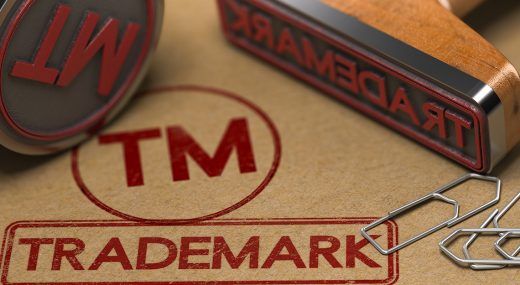A trademark is registered under The Trade Marks Act, 1950, which helps in attaining uniqueness to the goods and services in the market. The process of trademark registration has been made very simple and one can get it done from their home/office online.
Having said that there are certain grounds on the basis of which the Registrar of the Trademark may refuse/ deny registering your trademark.
Absolute grounds for the refusal of registration of trademark are discussed under Section 9 of The Trade Marks Act, 1950 which mandatorily restricts the registration of certain trademarks which are stated therein.
Lets’ put some shine on the relative grounds.
The relative grounds for the trademark registration are discussed under Section 11 of The Trade Marks Act, 1950. The provision is discussed as follows:
i. If the trademark is of such a nature that it is identical with an earlier trademark and covers similar goods or services covered by an earlier trademark; or
ii. If the trademark is of such nature that it is similar to an earlier trademark and covers identical goods or services which are covered by an earlier trademark;
And there is a genuine possibility of creating confusion and ambiguity among the public that includes the likelihood of association with an earlier trademark.
iii. If the trademark is identical with or similar to an earlier trademark and it is proposed to be registered for distinct nature of goods or services which are not covered by an earlier trademark (registered on the name of the different proprietor), then such trademark shall be refused for registration to the extent that an earlier trademark is a well-known trademark and the registration of the new trademark without due diligence would have detrimental effects on the goodwill and reputation of an earlier trademark.
iv. A trademark shall not be registered if its use is prevented in India by virtue of the operation of any law for the time being in force. As in the case of the law of passing off that protects the trademarks which are not registered and are used in the normal course of trade. Moreover, the law of copyright also prevents certain trademarks from registration on account of its operation for the time being in force.
Having said that there is also one statutory prerequisite which states that the registration of a trademark shall not be denied in the aforementioned point (iii) and (iv) until and unless any objection is raised in opposition proceedings by any proprietor of an earlier trademark.
v. Irrespective of anything contained in Section 11 of the Trade Marks Act, 1950 the registration of any trademark shall not be refused or denied, if the proprietor of an earlier trademark or other earlier rights provides his due consent (free from any force, coercion and undue influence) for the registration of a trademark which is otherwise ought to be refused for registration on one or more grounds mentioned in this section.
What is Earlier Trademark?
(i) A trademark that is already registered; or
(ii) A trademark for which an application under Section 18 of the Trade Marks Act, 1950 has been made on such date prior to the date of filing of an application of registration of trademark in question; or
(iii) An International registration of trademark referred to in Section 36E of the Trade Marks Act, 1950 bearing a date which is earlier than the date of filing of an application for registration of trademark in question; or
(iv) A convention application for the registration of trademark referred to in Section 154 of the Trade Marks Act, 1950 bearing an earlier date in comparison to the date for filling up of an application for the registration of trademark in question; or
(v) A trademark that is entitled to protection as a well-known trademark in contrast to the trademark in question.
In Toshiba Appliances Co. v Kabushiki Kaisha Toshiba, (2006) 1 CALLT 601 HC, the applicant herein tried to register his mark ‘TOSIBA’. This mark of the applicant had a close resemblance to the opponent’s trademark ‘TOSHIBA’ which was used in respect of electronic goods. It was held that the resemblance of these two trademarks had the potential of causing confusion and likely to deceive the general public. Thus the court held that the applicant’s mark ‘TOSIBA’ was deceptively similar or identical with the opponent’s trademark ‘TOSHIBA’ as there is a phonetic similarity also between the two marks and consequently refused to register the applicant’s mark.
Conclusion: –
In the above discussion, we have minutely gone through the provision contained in Section 11 of The Trade Marks Act, 1950 which specifically deals with the relative grounds of refusal of trademark registration. From these grounds, it is crystal clear that any mark or indication which tends to possess any possibility of causing confusion or ambiguity in the minds of the general public as to the origin, proprietor, quality, or other characteristics of goods/ services are refused by the Registrar of Trademark at the initial stage of the application for the registration of the trademark. This feature of the Act ensures the distinct and unique identity of any goods/ services of one person from that of others and helps the legislation to achieve its object and promote peace, harmony, and competition in the commercial market.
Nitin Gupta
Trademark Attorney at Lawgenix-Legal Geniuses

